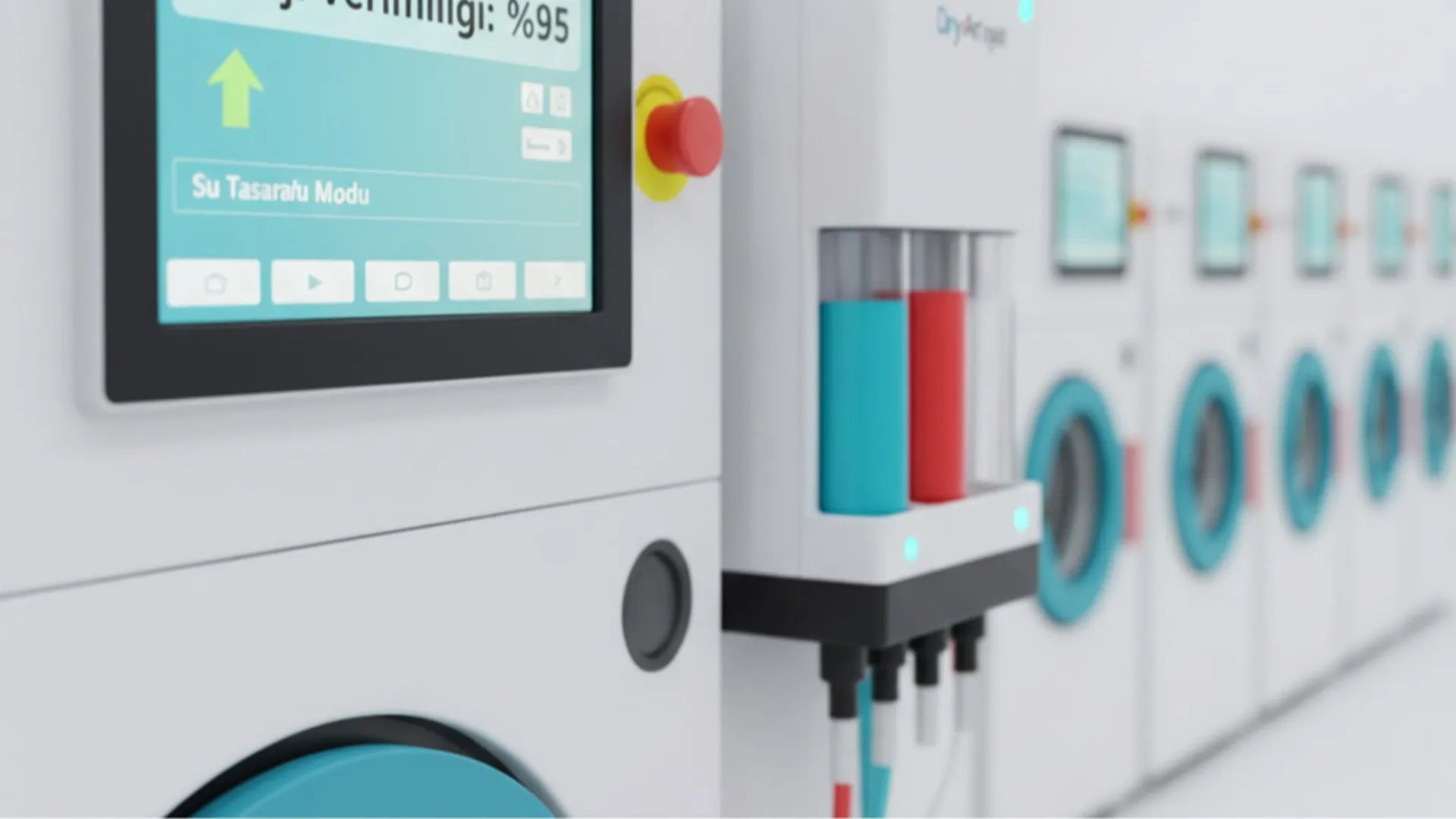Industrial laundry operations encompass detailed analyses of workflows, equipment selection, and hygiene control mechanisms. Readers will learn about linen and towel cleaning standards within the industrial hotel textile washing process, automation-based dosing approaches, and energy and water management applications. Supplier evaluation criteria, contractual clauses, and quality assurance procedures are also discussed, alongside laboratory test methods for performance monitoring. The content guides decision-makers toward operational efficiency and cost optimization, aiming to ensure reliability and consistency in hotel textile laundry applications. Expert commentary and actionable recommendations are provided.
Hotel Textile Washing Process in Industrial Laundry Systems
The main goal in corporate-scale operations is to maintain efficiency while ensuring compliance with hygiene and quality standards. The industrial hotel textile washing process requires documentation and traceability across classification, pre-treatment, dosing, washing, rinsing, drying, and packaging phases. Classification programs are defined based on fabric type, stain profile, and colorfastness, with distinct parameters for linens and towels. Pre-treatment should remove stains without damaging fibers, integrating fabric protection technologies into the process protocols. Automatic dosing systems must ensure uniform chemical and water distribution, supported by sensor data transferred to a centralized platform. This structure allows accurate performance monitoring. Energy and water consumption, waste management, and machine parameters should be cross-analyzed for optimization. Supplier assessments should include references, certifications, maintenance programs, and quality documentation. Operator training, certification, and audits maintain consistency, while lab tests, pH measurements, and microbiological analyses are vital to quality control. Contracts must clearly define service levels, emergency procedures, and warranty conditions. Detailed protocols—such as those in hotel textile washing—serve as operational references. Periodic evaluations enable sustainable and traceable improvement cycles.
Professional Efficiency with Automatic Dosing Systems
Automatic dosing infrastructure optimizes chemical and water use while maintaining process quality. In the industrial hotel textile washing process, dosing systems must ensure homogeneous distribution and reliable sensor integration. Data from sensors should be collected in SCADA or equivalent systems, dynamically adjusting dosing maps and washing parameters. Operational protocols should align cycle scheduling, load balancing, and capacity planning. Maintenance procedures must synchronize with textile protection technologies, ensuring calibration, stock control, and spare part documentation. Certified supplier audits, coordinated with professional laundry firms, should lead to corrective action plans. Real-time dashboards should track trends and issue automated alerts in case of deviations. Microbiological and quality parameters must be benchmarked against hygiene standards. Training programs should enhance operator efficiency, supported by documentation and digital archiving for audits. Performance reports, cost analyses, and improvement goals should be periodically presented to management.
Industrial Washing Technologies Meeting Hotel Hygiene Standards
Hygiene compliance is a key aspect of risk management in hotel operations. The industrial hotel textile washing process must align with legal and hospitality hygiene standards. Routine procedures include sampling plans, microbiological testing, temperature and detergent concentration control. Lab data should be cross-referenced with operational results to identify improvements and implement corrective actions promptly. Contracts must define biological safety measures, quality indicators, and measurable service levels. Supplier selection should prioritize certifications, proven experience, and performance records. Training and auditing programs must integrate with textile maintenance workflows. Digital traceability systems ensure record retention. Energy and water efficiency goals must align with waste management strategies. Maintenance plans should guarantee continuity, and quality indicators must be reported regularly. Transparent reporting strengthens operational reliability, while certification requirements must be periodically updated.
Balancing Cost and Performance in Professional Hotel Textile Services
Balancing cost and performance is a strategic priority in hotel management. Cost analysis for the industrial hotel textile washing process includes capital investment, energy and water consumption, chemical use, and maintenance. Efficiency and cost control must be assessed together. Optimization through proper load balancing, scheduling, and layout planning can enhance productivity. Total cost of ownership analyses improve decision-making. Supplier choice and clear service-level agreements ensure quality without compromising cost efficiency. Data-driven KPIs and ROI calculations for energy-saving investments define long-term strategies. Contract models should balance quality assurance with financial feasibility, considering depreciation, spare parts, training, and downtime costs. Sensor-driven optimization delivers measurable gains. Clear pricing and reporting transparency are essential for supplier relations. Technical and financial evaluations together ensure sustainable operations.
Preserving Textile Quality with High-Capacity Washing Machines
High-capacity washers are vital for consistent hotel operations and directly influence fabric quality and efficiency. Machine parameters such as drum speed, energy consumption, water efficiency, and program options should be carefully assessed. Layout design, maintenance accessibility, and workflow integration are key to operational continuity. Regular calibration and planned maintenance protect performance, while spare part management minimizes downtime. Optimized loading and gentle mechanical actions preserve fabric life. Improvements in these systems directly enhance guest satisfaction. Supplier evaluations should review references and maintenance infrastructure, and contracts must define service levels, maintenance intervals, and emergency protocols. Data-driven monitoring, staff training, and preventive maintenance improve reliability. Energy efficiency and water conservation must be embedded in operations. Planned downtimes aligned with production schedules ensure uninterrupted service. Together, proper equipment selection, technical capability, and preventive management guarantee operational quality and textile durability.



